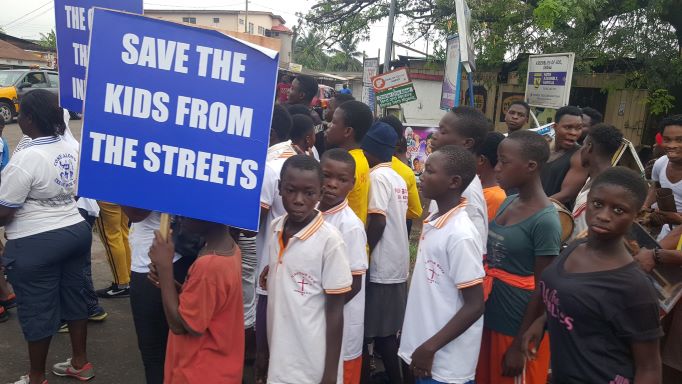Statistics from the 2021 Population and Housing Census (PHC) reveal that over 1,2 million (1,215,546) Ghanaian children aged four to 17 are not in school.
Out of that number, almost one million children have never attended school.
This was in a statement from the Ghana Statistical Service to mark World Children’s Day on November 20.
The Savannah Region has 43.2 per cent of children who have never attended school, which is the highest percentage in the country.
The findings emanated from the 2021 PHC Thematic Brief on Childhood Vulnerabilities in Ghana.
It presents statistics on children in Ghana, focusing on the number and distribution of vulnerable children and the correlates of child vulnerabilities.
The right to education is a widely recognised fundamental right.
A child’s right to education entails the right to learn and no person shall deprive a child access to education.
Children and young people have the right to education no matter who they are: regardless of race, gender or disability; if they’re in detention, or if they’re a refugee.
The UN Convention on the Rights of the Child affirms that every child has a right to education.
The purpose of education is to enable the child to develop to his or her fullest possible potential and to learn respect for human rights and fundamental freedoms.
Children and young people have the right to both primary and secondary education and should be able to choose different subjects when in secondary school.
Getting children into school is a key step in ensuring their right to education is met.
Ghana instituted Free, Compulsory Universal Basic Education (FCUBE) to expand and promote good and quality education through basic education.
The key to the development of any nation is through the educating of its people.
No civilized, humane or progressive society can ignore that right to schooling and education of its citizens, particularly its children.
Therefore, to implement the right of the child to a development-oriented education is a fundamental condition for improving the child’s quality of life and his/her ability to function fully as a constructive member of society.
Education must make the present and future well-being of the young generation as its ultimate goal, of which one of the most important conditions is to ensure the full realization of its rights.
It is therefore alarming that despite Free, Compulsory Universal Basic Education, such a high number of children are out of school.
It has become necessary for government to apply tough sanctions including arresting and prosecuting parents who neglect the education of their wards.
- Friday, April 4, 2025 Newspaper Headlines - 4 April 2025
- Blewett: MTN CEO, a pilot, author, chartered accountant, marathon runner and many more - 3 April 2025
- MTN Ghana launches Y’ello Ladies Network - 3 April 2025

